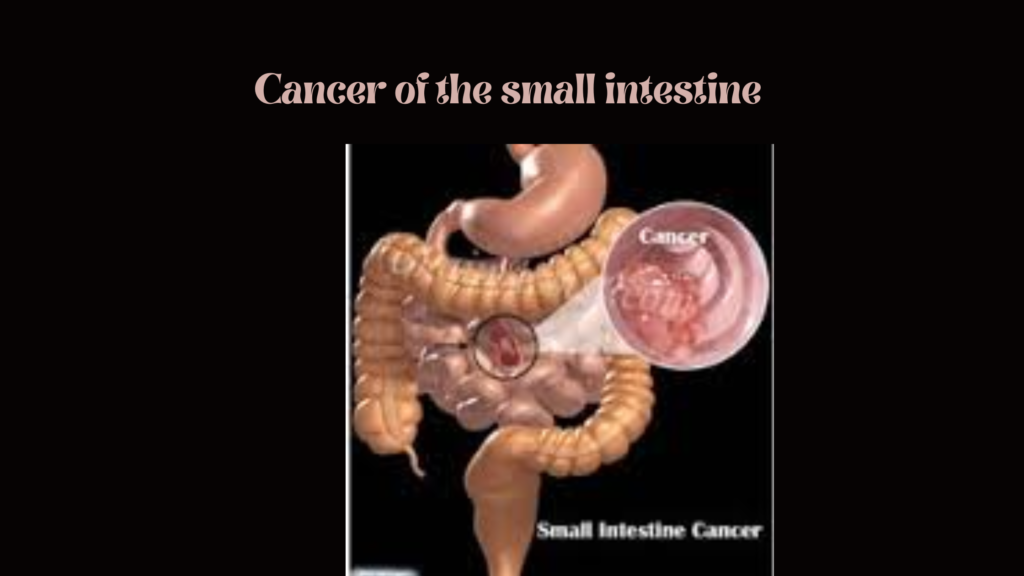Cancer of the small intestine, also known as small bowel cancer, is relatively rare compared to other gastrointestinal cancers. It develops in the tissues of the small intestine, which is responsible for digesting food and absorbing nutrients.
Types of Small Intestine Cancer
There are several types, depending on the cells involved:
- Adenocarcinoma (most common)
- Begins in the glandular cells lining the small intestine.
- Often occurs in the duodenum (the first part of the small intestine).
- Can be associated with Crohn’s disease or celiac disease.
- Neuroendocrine Tumors (NETs) (e.g., carcinoid tumors)
- Develop from hormone-producing cells.
- Often found in the ileum (last part of the small intestine).
- May grow slowly and be discovered incidentally.
- Lymphoma
- Cancer of the lymphatic tissue.
- Most often non-Hodgkin lymphoma, sometimes associated with immunodeficiency.
- Sarcoma (e.g., gastrointestinal stromal tumors or GISTs)
- Arises from the muscle or connective tissue.
- Rare but can occur anywhere in the small intestine.
Symptoms
Symptoms are often vague and can be mistaken for other conditions:
- Abdominal pain or cramps
- Nausea and vomiting
- Weight loss
- Fatigue
- Blood in the stool or black stools (melena)
- Jaundice (if bile ducts are obstructed)
Diagnosis
Diagnosis may involve:
- Imaging: CT scan, MRI, or capsule endoscopy
- Endoscopy: Esophagogastroduodenoscopy (EGD) or enteroscopy
- Biopsy: Tissue sample to determine cancer type
- Blood tests: For anemia or tumor markers
Treatment
Treatment depends on the type, location, and stage of the cancer:
- Surgery: Primary treatment for most localized small bowel cancers.
- Chemotherapy: For adenocarcinomas, lymphomas, or advanced disease.
- Radiation therapy: Less common, used selectively.
- Targeted therapy: Especially for GISTs or advanced NETs.
- Immunotherapy: Under investigation for certain types.
